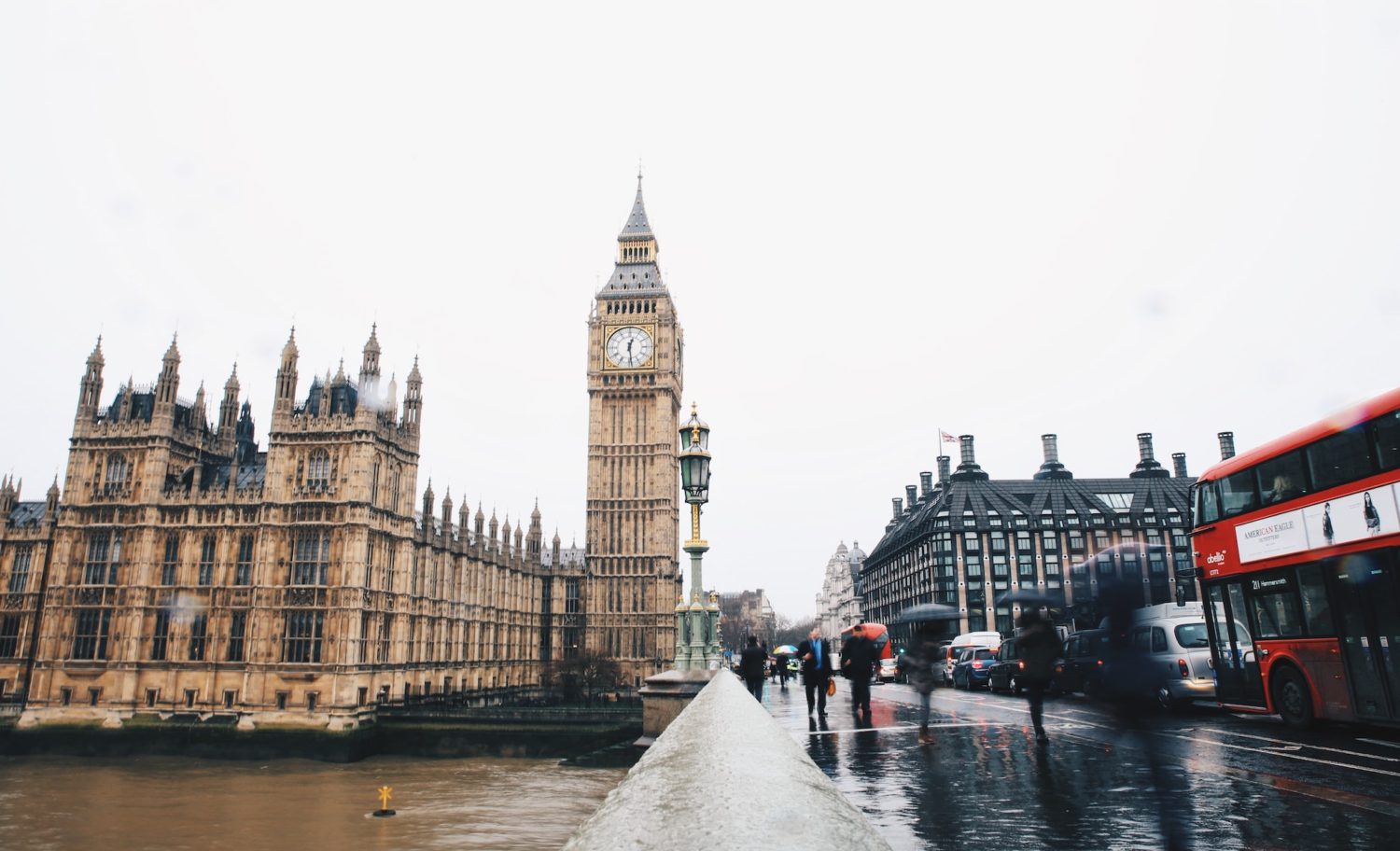Calling it out
British constitutional democracy is under attack - Labour must act, writes Hannah McHugh
Frustration with the shambolic approach of the Johnson government is finally being recognised at scale, and Labour has led the charge in decrying Tory sleaze, cronyism and exceptionalism. Yet, something far more sinister and far more concerning underlies these heinous abuses of privilege and power. Russia’s invasion of Ukraine has renewed our outrage for those who threaten democracy. Yet, it seems we are turning a blind eye to the health of ours.
This Conservative government is dismantling, piece by piece, our constitutional democracy. It is weakening our democratic institutions and if allowed to continue, they may be eroded to the point that they cannot resist further blows. Democracies do not only fall under the sudden conditions of a coup d’état. They can disappear slowly, from stealthy and piecemeal attacks. Our British constitution is not only going through significant turbulence but is at threat of backsliding out of democracy.
The constitutional changes we are witnessing are so prolific it is hard to keep track (with the Public Law Project being concerned enough to launch a helpful tracker). To mention only some of the significant changes, we have seen Brexit and the ongoing tension surrounding the Northern Ireland Protocol, the prorogation of parliament, the independent review of administrative law, the independent Human Rights Act review, the nationality and borders bill, the police, crime and sentencing bill, the judicial review and courts bill, the elections bill and multiple stories of breaching and pressuring the ministerial code. We must not be deceived into believing these changes are independent of each other, they interact in an important and threatening way.
The Labour party needs to stop responding only to the symptoms and start attacking the virus. We must call this what it is: an attack on our British constitutional democracy and the beginnings of ‘democratic backsliding’. We are more than trustworthy with the public purse. We are more than able to provide security in work and at home. Now we must be the party that protects and gives iron clad security to our constitutional democracy. This must be part of the Labour promise.
Calls for the protection of democracy come from voices across the Labour movement and across the political spectrum. While so often revered as a value, it is sometimes necessary for us to revisit why.
The British democratic constitution is there to provide some level of influence and control to every citizen of the United Kingdom. It ensures that law is made on the people’s terms, and not solely in the interests of those in power. It does this in two ways: by constraining the power of leaders through rules governing what they can and cannot do in office, and by giving powers directly to citizens and state institutions designed to ensure the people’s interests are upheld. Democracy does not just happen at the ballot box. It is not only a Labour value. It is the framework and rules that give us a basis of justice in British politics and we must fight for it.
Giving some level of influence and control to citizens, as a democracy seeks to, requires more than elections. This requires civil and political rights, independent judicial institutions, and a government that is accountable to uphold rules.
Without the integrity of the constitution in place, any government of the day could rule autocratically. Labour is for the people and must promise to protect the British people’s institutions from being hijacked.
What is democratic backsliding and how could it happen?
Scholars writing on democratic backsliding describe the process as a retreat by an incumbent government from democratic values and practices with the intention of curtailing criticism and inhibiting democratic opposition. Given this definition, it involves a shift away from democracy and towards autocracy.
There are three main pillars to a constitutional democracy, and these are under fire in the United Kingdom. Recall that most of the population did not vote Conservative in the last election. Each of these pillars exist to give power to the interests of citizens and groups that may not be shared or upheld by the government of the day. These pillars protect minorities and individuals against a ruling majority.
First, the government must be balanced against legal and judicial institutions possessing enough independence and integrity to uphold and protect citizens’ rights. Undermining the judiciary and appointing loyalists to bureaucratic posts are key instances of undermining this necessary separation of powers. Enough has been said about appointments of Tory cronies to key posts to compose a novel. Of pressing importance are the blows to judicial independence. The 2019 prorogation controversy brought the executive, parliament and the courts directly into conflict and while they were eventually thwarted by the Supreme Court, this was not the end of the erosion of judicial power. Despite the findings of an independent review ordered by ministers, Johnson’s government are pushing ahead with changes to judicial review that even David Davis MP was pushed to label as “an obvious attempt to avoid accountability”. Judicial review allows everyday people to challenge decisions made by public bodies and to hold them accountable. It is an important check on the balance of powers in our democracy being swept away. If Partygate has made anything clear, it’s that this government do not see themselves as accountable to follow rules.
The second democratic pillar is the protection of political rights and civil liberties. With the police crime and sentencing bill, the government is increasing police powers to restrict protests, and is giving the Home Secretary discretion over what types of protests are allowed. The bill is not about law and order. It is about increasing state control. Even Theresa May MP has expressed her concern: “It is tempting when home secretary to think that giving powers to the Home Secretary is very reasonable – because we all think we’re reasonable. But actually future Home Secretaries may not be so reasonable.”
If this bill alone were not enough to show there is an erosion of rights and liberties, we are also witnessing the government empowering themselves to remove citizenship without notice under the nationality and borders bill. This can be done under the vague auspices of the “public interest”.
Meanwhile, the Justice Secretary has also announced a consultation on the reform of the Human Rights Act. Under the proposals, among other concerns, a new “permission stage” for human rights claimants puts further obstacles between potentially vulnerable individuals and their ability to enforce their legal rights.
The trick of this government is to make us believe these policies are not connected. They weave together to remove the rights and liberties of citizens and to empower government to rule without constraint or challenge.
The final pillar of democracy relates to the electoral process, which is also at risk under this government. While the Electoral Commission has said the UK has “low levels of proven electoral fraud”, the government is charging ahead with the elections bill. The Electoral Reform Society has spoken out saying that the plans could lead to “disenfranchisement on an industrial scale”. This is the Conservatives seeking to disempower the citizens less likely to vote for them, and taking electoral voice from some of the most vulnerable people in our society.
Democratic backsliding is difficult to identify both before and during the process. It requires vigilance and identification and as opposition, it is our duty to identify this and to call out this slide towards autocracy.
One key indicator that a state is moving away from democracy, is where ‘state capture’ arises. This is characterised by political actors taking over the institutions of the state and misusing them for their own narrow political and economic interests. The government ceases to represent society’s interests and instead favours its own vested interests, thereby subverting democratic decision-making processes.
Conservative MPs have voted to not only disregard but in fact to rewrite the rules on parliamentary standards to protect Owen Paterson. This was an instance of exactly the type of systematic corruption seen where state capture is present: narrow interest groups take control of the institutions and processes that make public policy. The privatisation of Channel 4 and plans to strip the BBC (as an independent source of information for citizens) of its funding is another alarming indicator that this government is pushing towards state capture.
Many have interpreted Brexit as a vote for the Westminster model of politics. We must not let the will of voters morph into a licence for this government to undermine and destroy that Westminster model we so value.
While our democratic constitution remains, we must protect and secure it. As the process of backsliding is not abrupt, it will be difficult to determine the tipping point. Each incremental attack and erosion must be identified as part of this assault.
Of course, even Labour could benefit from these constitutional erosions in the future when elected to government. Yet, we must resist. We believe in British democracy and power for every citizen. We must bravely and boldly protect the framework that justly constrains us all in the interest of us all.
Labour needs to be even more than trustworthy in office. We must do even more than provide security in work and at home. We need to be the party that protects and makes the British constitution and democracy secure. These assaults are more than one rule for them and another for the rest of us. This government are tearing up the rulebook. It’s all the rules by them and for them. We must call this what it is: an attack on British constitutional democracy.

